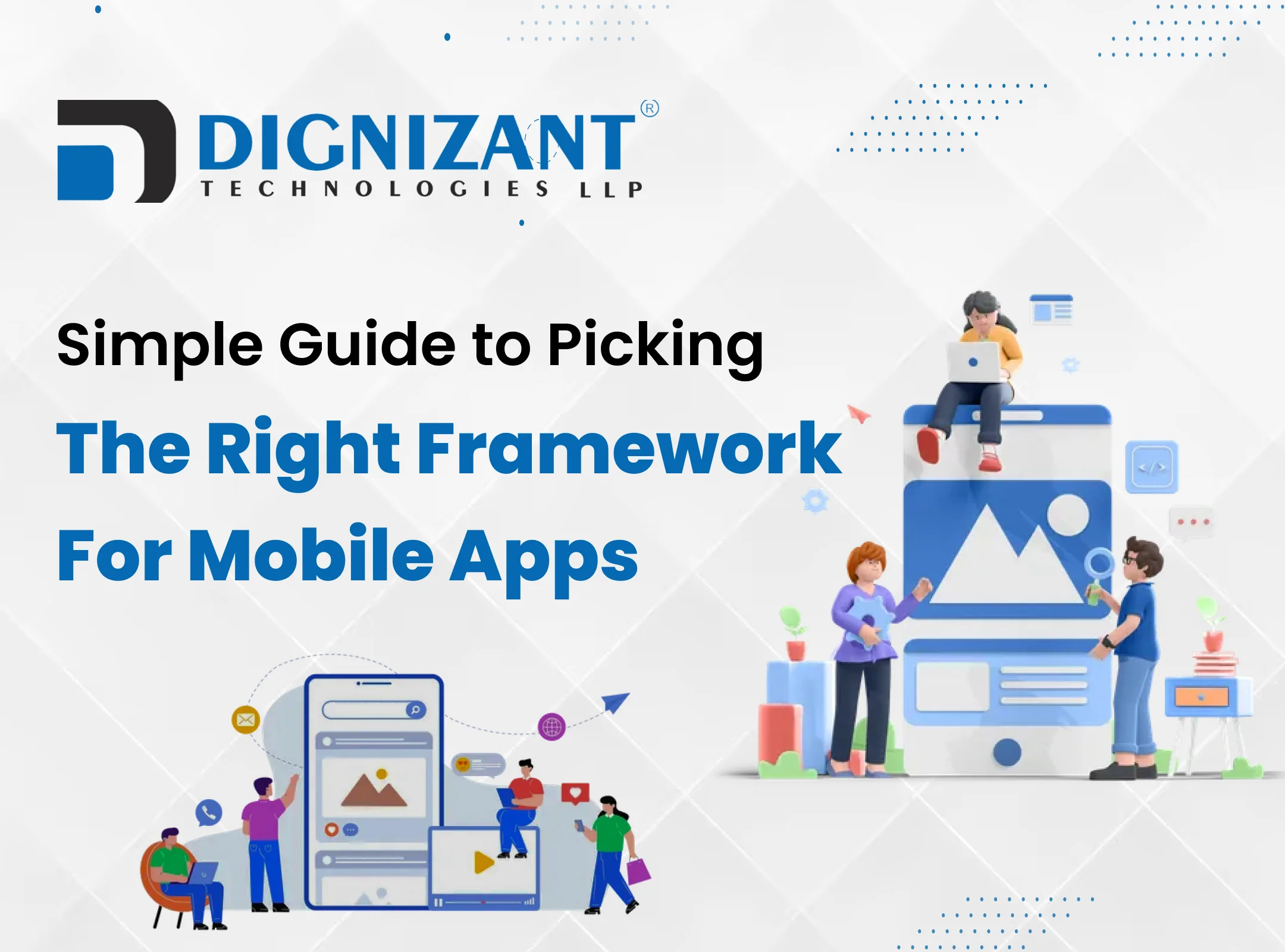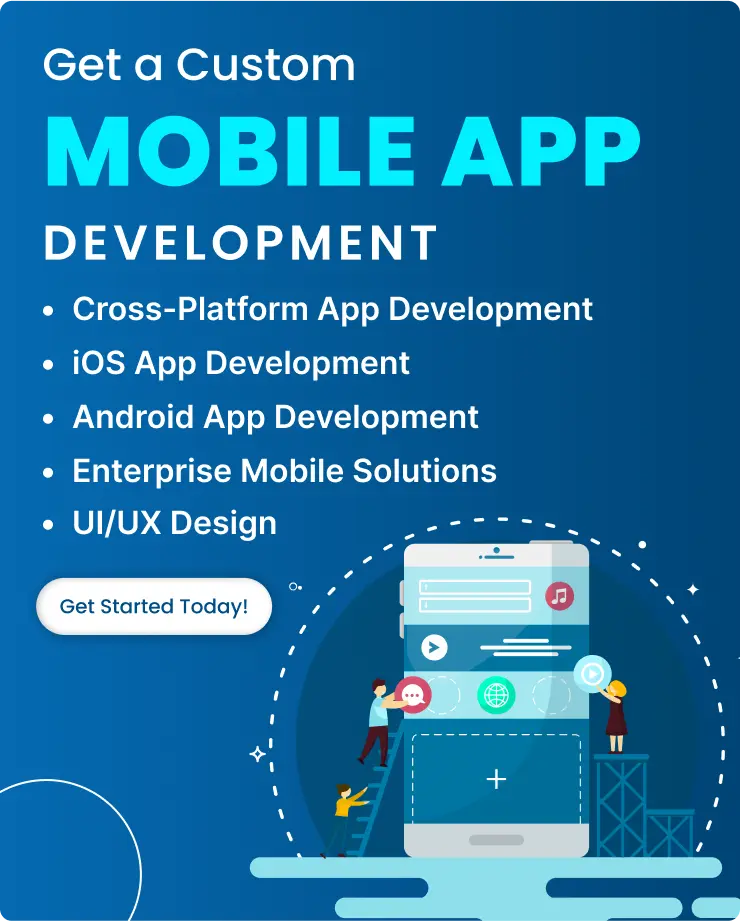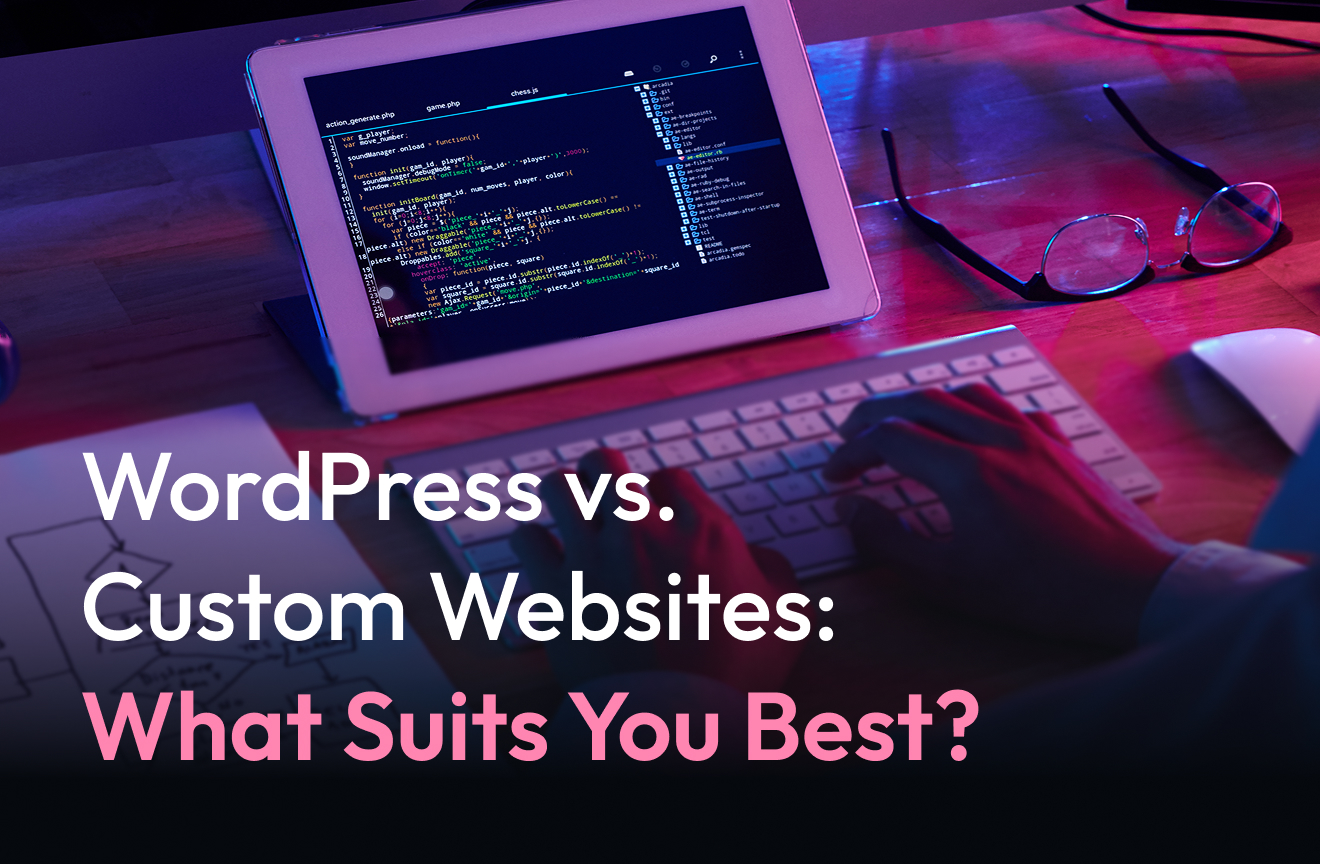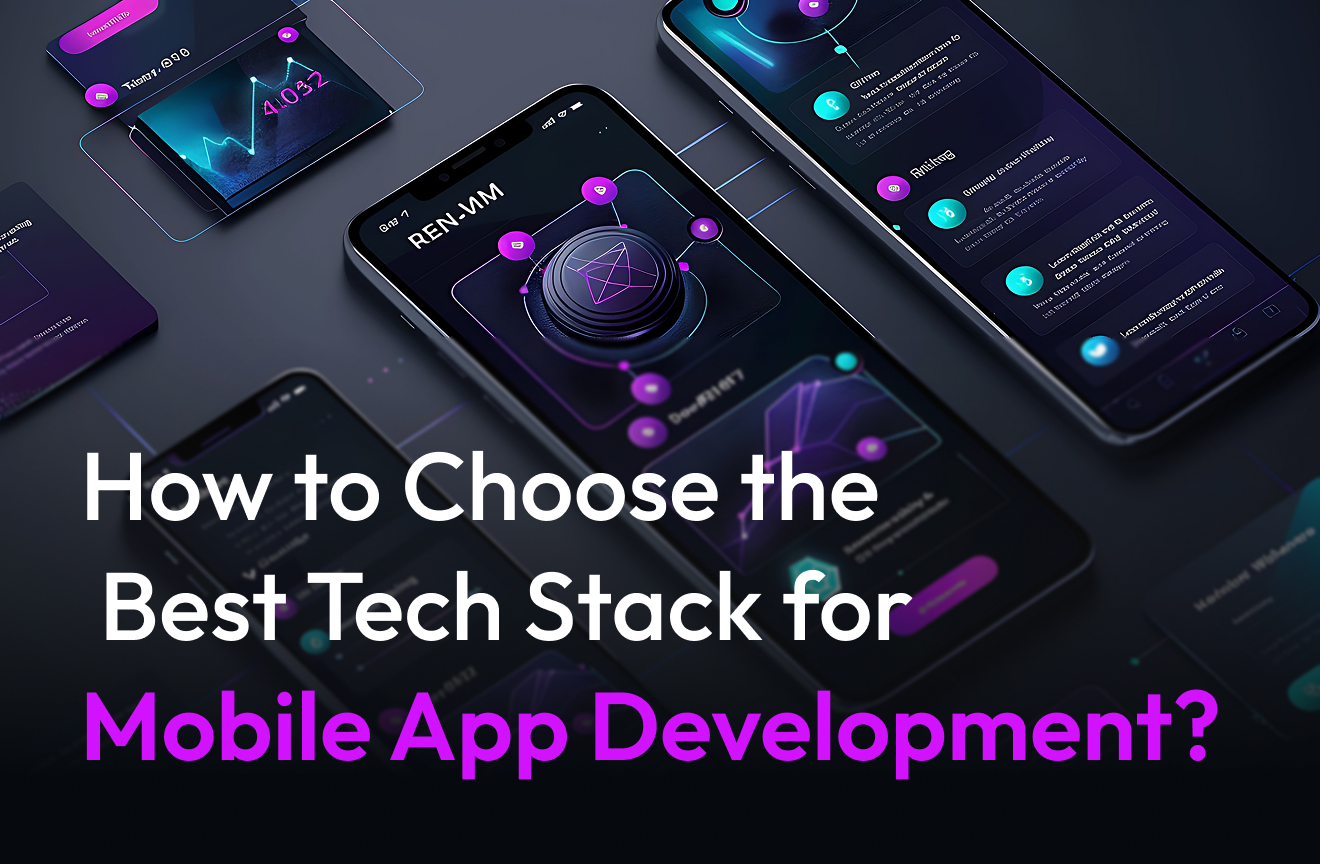Mobile apps have grown important for companies of all kinds in today’s fast-paced digital environment. Selecting the ideal mobile app development framework is important, whether you’re a startup trying to be noticed or a large company trying to reach more consumers. Choosing the ideal solution for your project might take a lot of work, given the large number of possibilities available. This blog will walk you through the main frameworks for developing mobile apps and assist you in selecting the best one for your needs.
The framework of your mobile app determines not only its development time and cost but also its functionality and user experience. This is especially important for organizations collaborating with mobile development companies in India. At the same time, certain frameworks are designed to deliver native-like performance on multiple platforms, while others are expressly developed to create feature-rich, reliable programs for a certain operating system. Choosing a framework that meets your business objectives and technology needs is more crucial than ever as the mobile world keeps expanding.
What is Mobile App Development?
The process of creating software for mobile platforms, such as tablets and smartphones, is known as mobile development. These applications can be created with Swift for the iOS (Apple) platform or Java or Kotlin for the Android (Google) platform. Additionally, developers may create apps that function on both iOS and Android from a single codebase by using cross-platform frameworks like React Native and Flutter.
Planning, UI design, coding, testing on various devices, and distributing the app on stores like Google Play or the App Store are all steps in the process. Developers will still update and improve the program after it is released.
Securing user data, optimizing the user experience, letting the app expand with its user base, and making sure the app functions well are all important factors to take into account while developing a mobile application. In general, the field of mobile development moves quickly, changing all the time in response to new technology and consumer needs.
What Are the Benefits of Mobile Development?
For developers, organizations, and customers alike, mobile development provides several advantages:
-
- Improved User Experience: With interfaces made specifically for touch interactions and small screens, mobile apps provide users with a customized experience. When compared to mobile websites, this may result in increased engagement and satisfaction.
- Increased visibility and branding: A company’s visibility can be increased by having a mobile app. Apps that are frequently updated and visible on users’ home screens help maintain brand awareness.
- Improved contact with customers: Push notifications, a feature of mobile apps, can be used to notify users of changes, sales, or new content, increasing user interaction and engagement.
-
- Operating Offline: Many mobile applications are independent, meaning users may access features and content even when they’re not online.
- Data Collection and Analysis: Businesses can obtain useful information about customer behavior, preferences, and usage patterns through mobile apps, which they can then utilize to improve services and strategies.
The Top Mobile App Development Frameworks for Your Business
React Native
Facebook launched React Native, which is one of the most commonly utilized frameworks for creating cross-platform mobile applications. It saves time and money by allowing developers to create code only once and have it run on both iOS and Android.
Key Features
-
- Cross-Platform Development: Write once and go wherever.
- Dynamic Ecosystem: Libraries and plugins in many forms.
- Great community support: A large developer community with many resources and active forums.
- Easy Reloading: Code updates quickly without requiring a full app rewrite.
Pros and cons
Pros:
1. Effective for small and starting companies.
2. Faster installation and development.
3. Changeable components.
Cons:
-
- Performance for advanced functions cannot equal that of native apps.
- We need regular upgrades to stay updated with platform updates.
Flutter
Another effective cross-platform framework is Flutter, which was created by Google. It is programmed in the Dart programming language and comes with a large collection of pre-made widgets that may be altered to create visually appealing applications.
Key Features
-
- Single Codebase: Create apps using a single codebase that runs on multiple platforms.
- Excellent performance: Compiled to native code, guaranteeing efficient operation.
- Complex User Interface Components: UIs can be made attractive with customizable modules.
- Fast Reload: During development, analyze changes quickly and in real time.
Pros and cons
Pros:
-
- Better performance is almost guaranteed by native apps.
- Flexible UI design features.
- Strong backing from Google.
Cons:
-
- Compared to JavaScript, the skill pool for the Dart language is lower.
- There are more pixels in the app than native ones.
Ionic
The popular open-source framework Ionic creates hybrid mobile apps with web technologies including JavaScript, HTML, and CSS. It enables programmers to use a single codebase to design apps that function across several platforms.
Key Features
-
- Web Technologies: Create apps with popular web technologies.
- Development Across Platforms: Web, Android, and iOS apps all use the same codebase.
- Huge Plugin Library: A large selection of plugins that offer more features.
- Using Angular with Integration: Smooth Angular integration for effective app development.
Pros and cons
Pros:
-
- Efficient prototyping and development.
- Affordable for new and small-scale companies.
- Strong community support.
Cons:
-
- Performance for advanced functions could approach that of native apps.
- Dependent on web views, which may affect how users feel.
SwiftC
Apple’s native programming language for creating iOS applications is called SwiftC. With the help of this strong, user-friendly language, developers can create apps that are fast and easily integrated with iOS capabilities.
Key Features
-
- Local Performance: Easy access to iOS APIs for best results.
- Security and Safety: Strong error handling and type safety.
- Valuable Records: A wealth of information and official Apple documents.
- Strong Connectivity: Easy interaction with watchOS, TVOS, macOS, and iOS.
Pros and cons
Pros:
-
- Excellent security and performance for iOS apps.
- Access to the most current APIs and features on iOS.
- Strong community and iOS support.
Cons:
-
- Limitations of the iOS programming platform.
- The greater learning curve for Swift-unversed developers.
Kotlin
Google fully supports Kotlin, which is the official language for developing Android apps and was created by JetBrains. Because of its clear and current syntax, Android developers frequently choose it.
Key Features
-
- Java connectivity: Maximum compatibility with Java code already existing.
- Features of Modern Languages: Simple syntax, null safety, and workflows for automatic programming.
- Strong Google Support: Selected by Google as the language of choice for Android developers.
- Vibrant ecosystem: Access to a broad range of tools and libraries.
Pros and cons
Pros:
-
- Code that is simple and clear.
- Suitable with Java, allowing a smooth transition.Strong dependability and performance for Android applications.
Cons:
-
- Limited to Android programming alone.
- Requires picking up a new language if switching from Java.
Choosing the Right Framework for Your Project
The best mobile app development framework for your project will rely on several variables, such as the platforms you wish to target, the requirements of the project, funds, and schedule. To help you decide, consider the following easy guide:
-
- Regarding cross-platform creation: The best options if you need to create apps for both iOS and Android using a single codebase are React Native and Flutter. Flutter offers superior UI design capabilities, whereas React Native offers access to a wider talent pool.
-
- Regarding Applications at the Commercial Level: For enterprise apps, Xamarin is perfect, especially if you’re currently working with Microsoft technologies. It provides excellent code reuse and native speed.
-
- Regarding Hybrid app development: Ionic is a fantastic option for creating web-based hybrid applications. It is affordable and allows for quick development.
-
- Regarding Native iOS development: The preferred framework for creating high-performing iOS apps that integrate perfectly into the Apple ecosystem is called Swift.
-
- Regarding Native Android programming: The greatest option for developing Android apps is Kotlin, which has robust performance and current language features.
Conclusion
Choosing the best mobile app development framework is important for the success of your project. Since each framework has positive and negative aspects, the best choice will depend on your needs. Whatever your needs—high performance, user-friendliness, or cross-platform compatibility—there is a framework that can help you accomplish your goals.
AI is transforming mobile app development as technology advances, presenting fresh possibilities and difficulties that may further affect your framework selection. Making a decision based on a careful analysis of the requirements, funding limitations, and project timeline will put you ahead of the game when it comes to creating a successful mobile application.
Frequently Asked Questions
1.What is the difference between cross-platform and native mobile app development?
Using cross-platform development, you can write code that works on both iOS and Android with a single codebase. On the other hand, native development entails developing unique applications for every platform, which usually results in greater performance but uses more resources.
2. Which mobile app development framework is best for startups?
React Native and Flutter are frequently suggested for companies with low resources because of their capacity to develop cross-platform apps quickly and affordably.
3. Is Flutter better than React Native?
Each framework, Flutter and React Native, has advantages. While React Native is favored due to its extensive ecosystem and JavaScript-based development, Flutter is frequently commended for its highly customizable widgets and exceptional performance. What’s best for you will depend on the requirements of your project.
4. What are the main advantages of using React Native?
The benefits of React Native include speedier development, a big developer community, and a single codebase for both iOS and Android. It’s very economical and effective for projects that range from modest to medium in size.

Stay Up to Date
Get our newsletter





